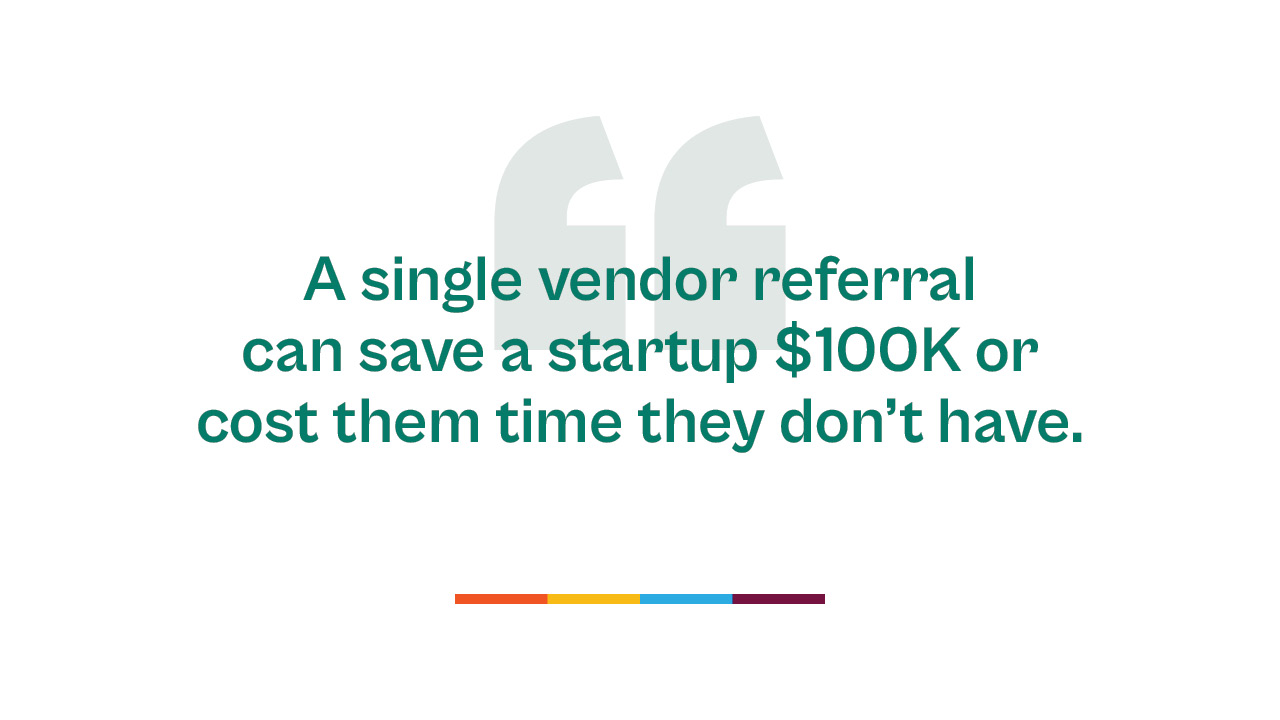
The role of relationship management software in venture capital management

Do you know why strong VC-founder relationships matter?
In venture capital, relationships are everything. From investor relations to connections with founders, fund managers must effectively balance multiple different perspectives and sometimes competing agendas in order to succeed.
These relationships underpin due diligence on initial investments, future investment rounds, follow-on investments, and even limited partner (LP) communications. Building and maintaining them over time requires structure, coordination, and the right tools.
While the underlying principles of relationship building remain unchanged, how we nurture and maintain them in modern times is rapidly changing.
The best venture capital firms leverage tools and technological solutions such as relationship management software to centralize communication, track interactions, and ensure data-driven decision-making.
As venture capital portfolio management becomes increasingly complex, technology has become a critical enabler for operations managers seeking to maximize networking opportunities and establish trust across their ecosystem. Successful portfolio management relies on leveraging this technology strategically.
Automating Portfolio Company Updates for VC Firms
Manually tracking founder updates, key performance indicators (KPIs), and milestones across a growing portfolio is not just inefficient, it limits your ability to scale relationships and support.
Relationship management software transforms this process by:
- Capturing real-time updates directly from portfolio companies, especially important for rapidly-evolving early-stage companies
- Structuring critical business data and key metrics (ARR, burn rate, milestones) for quick reference
- Synchronizing that data across your team to retain institutional context
Beyond reducing administrative overhead, automation ensures no update falls through the cracks. It enables the firm to:
- Proactively support companies heading into future investment rounds
- Spot emerging risks to portfolio performance before they become problems
- Prepare more confidently for follow-on investments and board discussions
Integrated update systems also benefit limited partners with reporting tools that create a streamlined path to LP-ready information, showing operational transparency and responsiveness and promoting investor engagement. Ultimately, automating portfolio updates unlocks capacity for operations teams to deepen high-value founder relationships, the kind that could potentially drive outsized returns.
Best Practices for Relationship Management in Venture Capital
Operations managers play a pivotal role in venture capital portfolio management. They're responsible for maintaining strong relationships and scaling those relationships through repeatable, data-informed practices.
As the firm grows, institutionalizing relationship management becomes essential for consistent execution across the portfolio.
Here are some proven, high-impact practices to enhance relationship management:
1) Centralize Contacts: Use software to maintain a single source of truth for all stakeholder profiles, including founders, limited partners, advisors, and vendors. This enables easy access to relationship history and supports continuity during staff transitions.
2) Track Every Interaction: Logging meetings, investor calls, and founder updates provides operational visibility. When properly recorded, these touchpoints surface strategic insights, like responsiveness trends and readiness for follow-on investments.
3) Use Relationship Health Metrics: Go beyond gut feel by analyzing engagement frequency, time since last contact, and interaction outcomes. This helps identify neglected relationships and surface warm leads for future investment rounds or LP referrals.
4) Coordinate Internally: Cross-functional collaboration prevents duplicated efforts and strengthens firm-wide relationships. Use shared notes, deal tags, and alerts to keep partners, associates, and platform teams aligned.
5) Segment Communications: Tailor communications to each audience’s context and expectations. For example, LPs may expect portfolio-level dashboards, while founders may need guidance on vendor resources or best practices. Thoughtful segmentation increases message relevance and builds trust.
Of course, building relationships isn't just about strong communication with internal stakeholders. We also need to consider external stakeholders who are essential to supporting the firm's operations. So let's discuss how to approach networking.
Maximizing Networking Opportunities Across the Ecosystem
Whether at conferences, demo days, investor summits, or virtual roundtables, networking remains one of the most effective ways for VC firms to source deals, gather market intelligence, and nurture limited partner relationships. Yet without structure and follow-through, valuable insights and introductions often get lost.
Relationship management platforms are a great solution for firms to:
- Plan, track, and analyze networking events across the team
- Log key details about who was met, what was discussed, and the relevance of the contact
- Link conversations to existing portfolio companies or future investment prospects
- Set timely follow-ups to nurture the relationship post-event
In doing so, these tools transform one-off encounters into structured relationship-building opportunities. Over time, this helps VC teams:
- Strengthen credibility with founders and co-investors
- Track interactions across multiple touchpoints and team members
- Build a deep, referenceable network that fuels deal flow and syndication
When these networking insights are integrated into a firmwide relationship database, they become a strategic asset, enhancing the firm's reputation, sharpening investment decisions, and surfacing new opportunities that align with the firm’s thesis.
Example:
Imagine a VC associate attending a two-day industry conference, meeting dozens of founders, other investors, and potential vendors. Without a structured tool, most of the insights from those conversations would sit in a personal notebook or, worse, get lost entirely.
But with a relationship management platform in place, that associate can immediately log each interaction, tag contacts by sector or stage, and assign follow-ups to relevant team members.
A week later, a partner can filter by "AI founders met at [Conference Name]" and uncover a founder ready to raise. What would have been a lost opportunity is now a qualified lead, complete with context and contact history. This is how deal flow compounds when networking intelligence is captured and operationalized.

Managing Vendor and Service Provider Relationships
Vendor relationships can be just as crucial as founder relationships, especially when startups need help with tools, infrastructure, compliance, or go-to-market services. In fact, a well-timed vendor referral from the platform team can accelerate a portfolio company’s growth or save tens of thousands of dollars annually.
Yet, many firms still manage these relationships through scattered email threads or disconnected spreadsheets, making it hard to scale support across the portfolio.
The right vendor relationship management software brings order and strategy to vendor interactions. It supports:
- Discovery and Referral Tracking: Log vendor recommendations from within the firm or other founders, including notes on past experiences and outcomes.
- Evaluation and Shortlisting: Compare vendors across categories, pricing models, and past performance to help startups make confident, fast decisions.
- Onboarding and Integration: Streamline the process of introducing a new vendor to a portfolio company with shared documentation, workflows, and intros.
- Ongoing Engagement and Performance Management: Monitor vendor satisfaction, flag issues, and track contract renewals and renegotiations.
- Knowledge Sharing Across the Portfolio: Easily surface which vendors are being used successfully by other startups in the portfolio, enabling cross-company learnings and more confident vendor adoption.
By actively managing vendor relationships, VC firms act as proactive partners, providing founders with ready solutions that speed up execution and minimize friction during critical growth phases. Instead of repeatedly building solutions from scratch, the fund develops institutional knowledge that accumulates over time.
Curious how this looks in practice? Try Proven's vendor relationship management tool to see how easy it can be to centralize insights, accelerate referrals, and drive real portfolio impact.
.jpg)
How Relationship Management Software Powers Collaboration
The VC portfolio management process is a team sport. It's inherently cross-functional. From deal partners and platform leads to finance, legal, and talent teams, multiple stakeholders are involved in supporting each investment, often asynchronously and across time zones.
In such a complex environment, fragmented communication leads to missed opportunities, duplicate outreach, and inefficient handoffs that can erode trust with founders and LPs.
Relationship management software serves as the connective tissue that brings alignment, context, and continuity to VC collaboration. Here's how:
- Assigning Tasks and Setting Reminders: Whether it’s a follow-up with a founder after a board meeting, a warm intro to a later-stage fund, or a pending vendor referral, the platform ensures nothing slips through the cracks. Tasks can be tagged by company, owner, urgency, or theme—turning conversations into action items that are trackable and transparent across the team.
- Sharing Updates Across Internal Teams: Founders often speak to multiple people at the firm. Without shared visibility, insights from one interaction don’t inform the next. With software, notes from meetings, call summaries, and relationship health indicators are visible to everyone who needs context—creating a single source of truth for founder engagement.
- Aligning Partners on Key Follow-Ups or Investment Decisions: Before a follow-on round or new fundraise, investment teams can review the entire relationship history, past updates, operational notes, and vendor activity. This allows partners to enter discussions with a unified narrative and confidence in their understanding of the founder’s journey.
Real-World Insight:
Imagine a portfolio company preparing for a strategic round. While the investment partner is deep in diligence, the platform lead has been supporting the team with vendor introductions and the ops team has been troubleshooting their GTM metrics.
Without a centralized record, insights from these parallel efforts are scattered. But with a shared relationship management platform, all updates flow into a single timeline. This allows for faster alignment, clearer decision-making, and stronger founder support all with less internal overhead.
In short, relationship management software replaces the typical backchannel chatter, redundant Slack threads, and information silos with structured, actionable collaboration.
This is the kind of organization and cohesive execution that every great firm aspires to. It take productivity to the next level. With it comes the benefit of collecting data that can be put to good use.
Relationship Analytics: Turning Insights into Action
Data is only powerful if it drives action. With the right data you gain access and insights that strengthen the quality of the relationships your firm needs to thrive. And that can be just as valuable as capital.
Rather than relying on gut instinct or anecdotal updates, modern relationship management platforms quantify relationship health and make it visible to the entire team. This allows everyone to make relationship-based decisions with the same rigor they apply to financial ones.
Which Performance Metrics Matter?
- Engagement Frequency: How often are you in touch with a founder, LP, or co-investor? Has it been two weeks or six months? Analytics flag stale relationships before they drift.
- Responsiveness Trends: Are your emails being opened? Are meetings followed up on? These indicators help surface disengagement early whether from a founder or your own team.
- Coverage Gaps: Are some portfolio companies receiving too little attention? Are key LPs not getting enough facetime? Segment-level views highlight imbalance so resources can be reallocated accordingly.
- Sentiment and Outcome Tracking: Over time, tagging interactions by tone (e.g. positive, neutral, concern) or outcome (e.g. intro made, ask fulfilled, deal won) creates a real feedback loop into what’s working.
Strategic Use Cases:
- Portfolio Support Prioritization: Analytics can identify which founders are slipping off the radar allowing platform teams to step in and re-engage before friction emerges.
- LP Communications: Use relationship health data to time outreach around updates, renewals, or fundraising. Showing a history of meaningful interaction reinforces trust and transparency.
- Follow-On Investment Readiness: Combine relationship data with performance signals to get a holistic view of which companies are well-positioned for future rounds and which need more hands-on support.
Insight:
At many firms, portfolio reviews still rely on anecdotal updates from individual partners. But imagine instead walking into that review with relationship dashboards showing last-touch dates, founder sentiment trends, and gaps in operational coverage. The conversation shifts from “How’s Company X doing?” to “Why haven’t we heard from them in 90 days, and what can we do about it?” That’s the power of turning relationship data into an operational tool, rather than settling for a passive dashboard.

Securing Key Documents and Compliance
Document management in venture capital is more than secure document storage. It’s about trust, transparency, and operational excellence. Whether you're preparing for LP audits, sharing due diligence packets, or referencing historical board notes, having reliable, structured access to critical documents is non-negotiable.
Relationship management platforms enable VC teams to move beyond scattered file systems or email attachments by offering a secure, centralized repository purpose-built for collaboration. This functionality supports:
- Investment Memos & Legal Agreements: Quickly locate past deal documentation, legal reviews, and approval records all linked to the relevant portfolio company timeline.
- Pitch Decks & Reporting Templates: Maintain up-to-date founder materials, financial updates, and board decks in one place for easy reference during investment meetings or LP updates.
- Compliance Records: Ensure LPs receive timely and complete information with standardized audit trails, capital call documentation, and ESG reports—all stored securely and access-controlled.
What truly elevates this capability is role-based access. What does that mean? Different team members, founders, or external legal counsel can be granted permissions based on need. This protects sensitive information while streamlining workflows between internal and external stakeholders.
Insight:
During a fundraising cycle, having to manually track down three years’ worth of board minutes, KPI dashboards, and founder updates can delay a deal or worse, signal disorganization. But when those materials are already stored and tagged in a relationship management system, the operator can generate a full reporting packet in a matter of minutes. That level of preparedness enhances a firm’s credibility and accelerates decision-making for all parties involved.
In Summary:
This is how venture capital firms manage relationships with portfolio companies in the age of AI and automation. Cultivating strong relationships isn't a nice-to-have; it's a foundational asset in any investment strategy, and the best venture capitalists are learning to create leverage using the right tools.
In an ecosystem where access, trust, and timing make all the difference, how well you manage relationships can define your ability to thrive and hit business objectives.
With the right venture capital management software in place for the various necessary functions, your firm can centralize fragmented data, increase transparency across teams, and respond faster to founders, LPs, and co-investors.
From streamlining vendor engagement to surfacing relationship insights and securing critical documents, relationship management software solutions give operations leaders the structure they need to scale their impact.
It’s not just about being organized. It’s about becoming the kind of VC firm that founders want on their cap table and LPs trust with their capital.
The firms that win tomorrow will be the ones that manage relationships with the same precision they manage capital. Start building that advantage today. Pick the right tools for your firm and your portfolio companies.
Curios to see what Proven can do for your portcos? Book a free demo.





.png)






